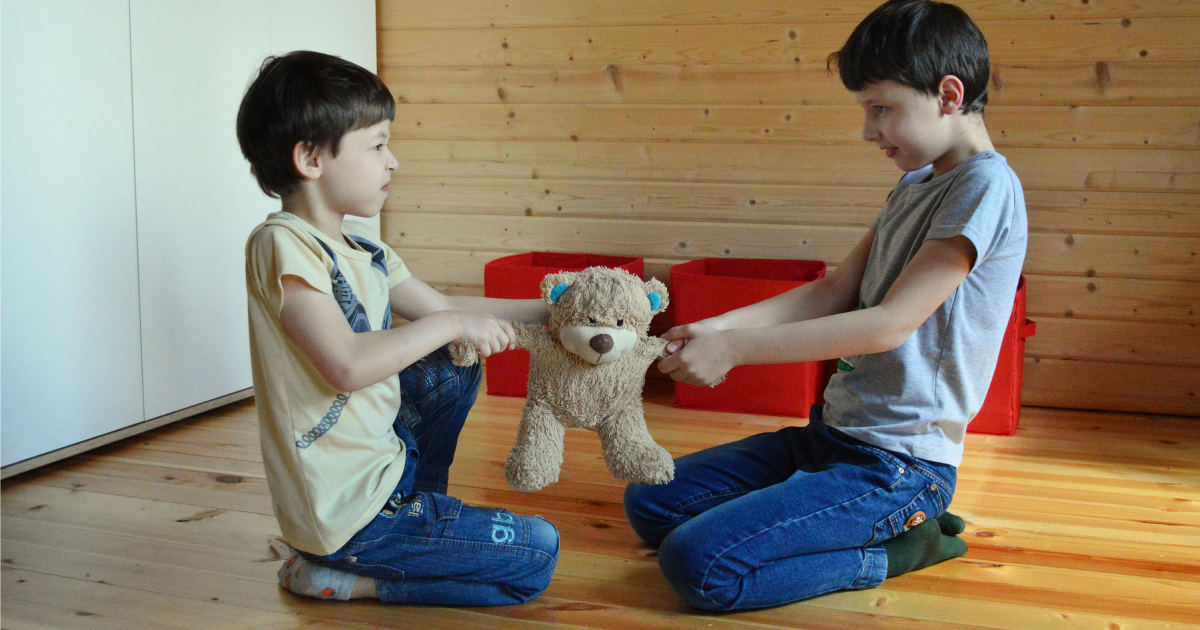Sibling rivalry is a common experience in many families, often portrayed as a normal part of growing up.
From minor squabbles to more intense conflicts, these interactions can leave parents feeling overwhelmed and unsure of how to respond.
But how much of sibling rivalry is truly unavoidable? And how can parents foster healthier relationships among their children?
In this article, we'll debunk common myths about sibling rivalry, explore the underlying causes, and uncover practical strategies to manage conflicts.
Whether you're dealing with toddlers fighting over toys or teens navigating personal boundaries, this guide will provide valuable insights to help you along the way.
Understanding sibling rivalry

Sibling rivalry refers to the competition, jealousy, or conflict between brothers and sisters. It is a natural part of growing up, influenced by factors like age, personality, and family dynamics.
Here's what parents need to know:
- Normal behaviour: Occasional disagreements and competition are common and help children learn conflict resolution skills.
- Developmental influence: Rivalry often intensifies during developmental stages, such as when toddlers learn to assert independence or when teens navigate personal identity.
Debunking myths about sibling rivalry
Many misconceptions about sibling rivalry can lead to unnecessary stress for parents. Let's separate fact from fiction:
- Myth one: Rivalry means your children don't love each other
- Fact: Arguments are a normal way for siblings to express emotions and set boundaries. Love and rivalry often coexist.
- Myth two: Only same-gender siblings compete
- Fact: Rivalry is influenced more by personality and parenting style than gender.
- Myth three: Rivalry will resolve on its own
- Fact: While some conflicts naturally diminish, parental guidance is key to fostering healthy sibling relationships.
Causes of sibling rivalry
Several factors contribute to sibling conflicts, including:
- Parental attention: Competition arises when children feel one sibling receives more attention or favouritism.
- Age gap: Large or small age differences can affect dynamics, with younger siblings often wanting to emulate older ones.
- Temperament differences: Conflicting personalities or interests can lead to misunderstandings and clashes.
- Stress in the family: Major life changes, such as a new baby, divorce, or relocation, can exacerbate sibling tensions.
The impact of sibling rivalry
While occasional rivalry is normal, unresolved conflicts can have lasting effects:
- Emotional impact: Persistent conflicts may lead to feelings of insecurity or resentment.
- Relationship strain: Unaddressed issues in childhood can affect sibling relationships into adulthood.
- Social skills: Learning to manage sibling conflicts helps children develop empathy, negotiation skills, and conflict resolution abilities.
Practical tips for managing sibling rivalry
Encourage positive interactions
- Praise your children when they co-operate or show kindness to one another.
- Foster teamwork through shared activities or games that require collaboration.
Teach conflict resolution skills
- Help your children express their emotions in healthy ways.
- Model active listening and guide them in finding mutually acceptable solutions.
Set clear boundaries
- Establish family rules about respect and behaviour.
- Intervene when conflicts escalate to physical or verbal aggression.
Avoid favouritism
- Spend quality time with each child individually to ensure they feel valued.
- Be mindful of how you compare or praise your children in front of each other.
When to seek professional help
While sibling rivalry is usually manageable, consider seeking professional guidance if:
- Conflicts lead to constant hostility or emotional distress.
- One child feels consistently targeted or bullied by another.
- You notice signs of anxiety, depression, or withdrawal related to sibling dynamics.
Family therapists can help address underlying issues and teach effective conflict resolution strategies.

Sibling rivalry is a natural part of family life, but with the right approach, it doesn't have to be a source of constant stress.
By understanding the causes, debunking myths, and using practical strategies to manage conflicts, parents can help their children build strong, supportive relationships that last a lifetime.
Remember, every disagreement is an opportunity to teach empathy, communication and problem-solving-skills that will benefit your children far beyond their years together at home.
[[nid:709820]]







.webp)
.webp)

